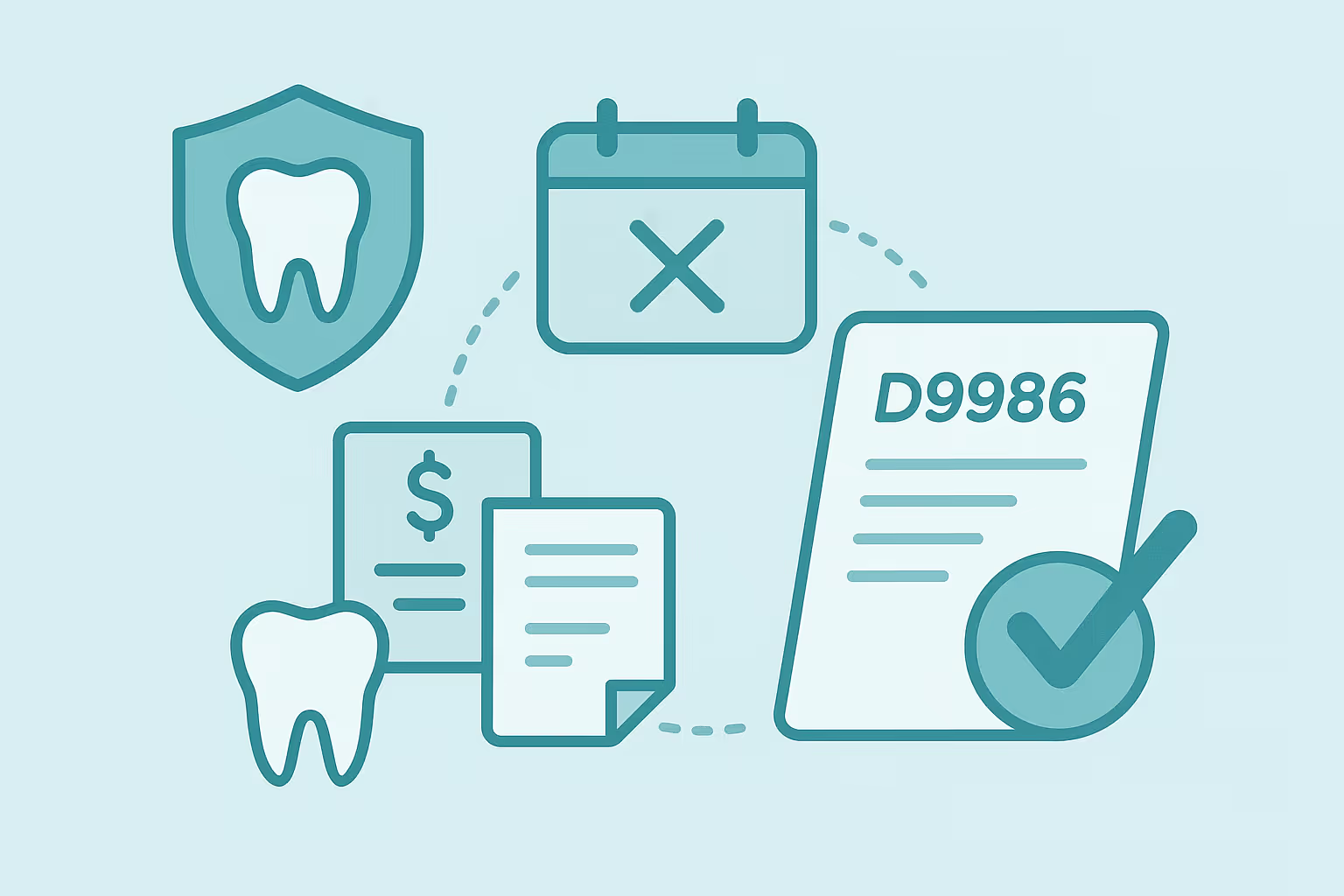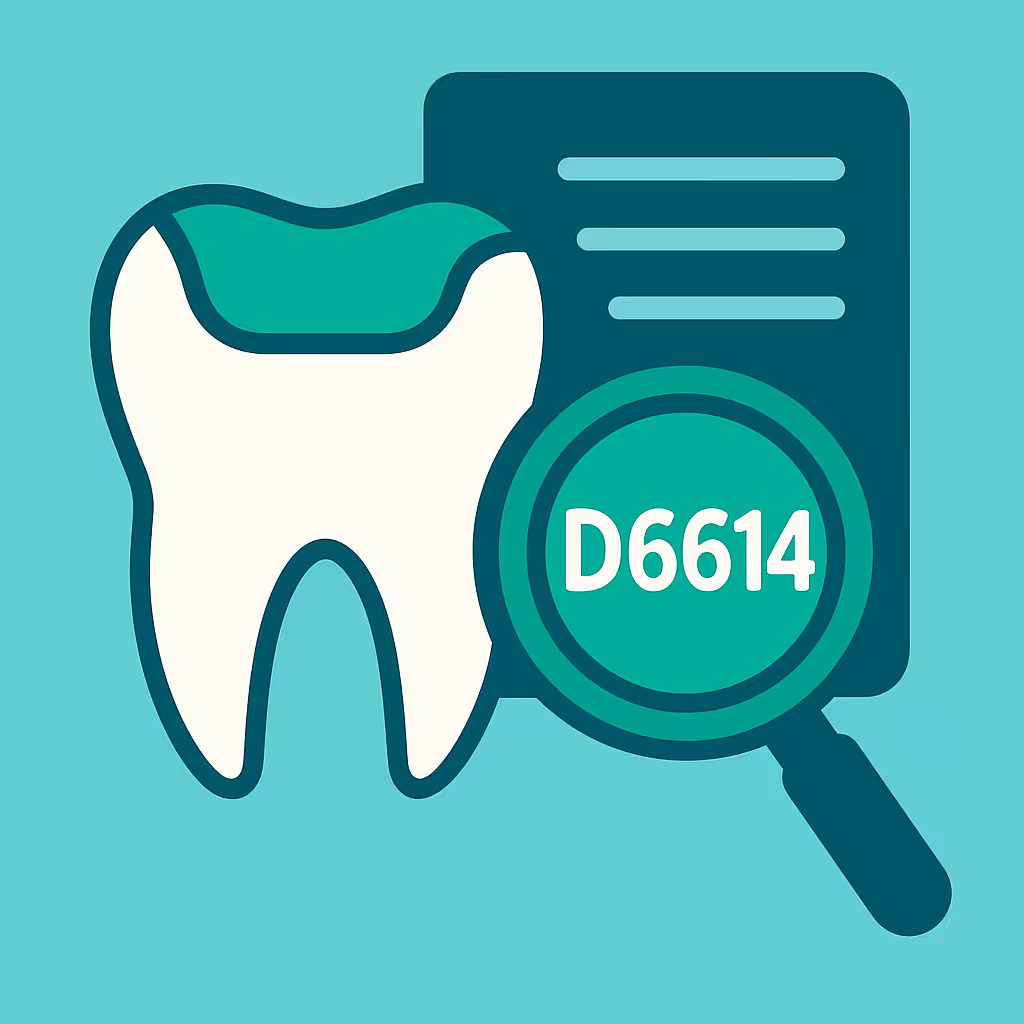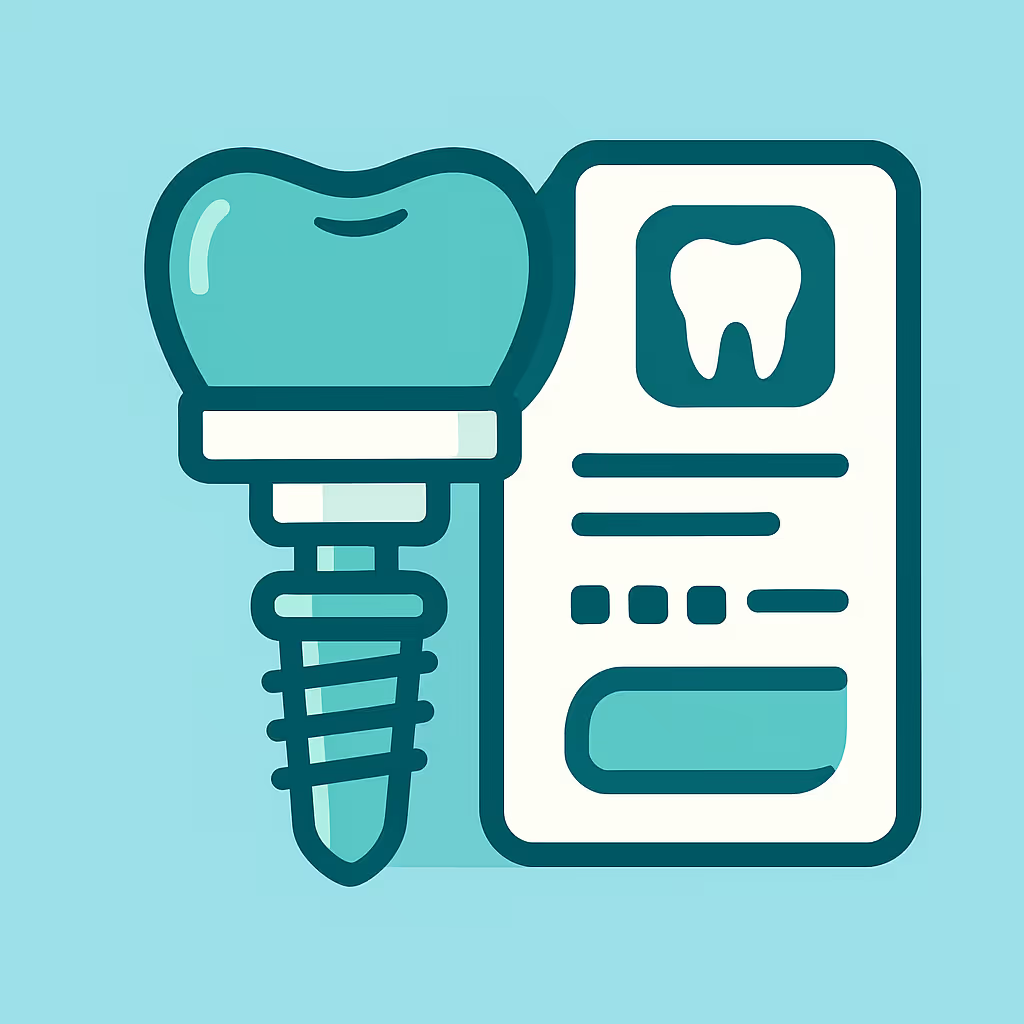Understanding Dental Code D9986
When to Use D9986 dental code
The D9986 dental code is a CDT (Current Dental Terminology) code specifically designated for missed appointments. Dental practices use D9986 to document and, when appropriate, bill for scheduled appointments that a patient fails to attend without adequate notice. This code is not for cancellations with proper notice or rescheduled visits; it is strictly for no-shows or last-minute cancellations that disrupt the practice’s schedule and operations. Implementing D9986 helps practices recoup some of the lost revenue and reinforces the importance of appointment adherence with patients.
Documentation and Clinical Scenarios
Accurate documentation is essential when applying D9986. Best practices include:
- Clearly noting the missed appointment in the patient’s chart, including the date, time, and nature of the appointment.
- Documenting any attempts to contact the patient regarding the missed appointment.
- Recording the office’s missed appointment policy and whether the patient was informed of this policy in advance.
Common clinical scenarios for D9986 include hygiene recalls, restorative procedures, or specialty appointments where the patient fails to appear. For example, if a patient misses a scheduled crown prep without notifying the office, D9986 can be applied, provided the office policy supports charging for missed appointments and the patient has been previously informed.
Insurance Billing Tips
Most dental insurance carriers do not reimburse for missed appointment fees, and D9986 is typically considered a non-covered service. However, it is still important to submit the code on the claim or patient ledger for transparency and accurate record-keeping. Here are some actionable tips:
- Verify your office’s financial policy includes clear communication about missed appointment charges and obtain patient acknowledgment.
- Always check the patient’s insurance plan details—some plans may allow for limited reimbursement, but this is rare.
- Include D9986 on the claim form as an informational line item, even if it is not billable to insurance. This ensures the patient receives an Explanation of Benefits (EOB) reflecting the charge.
- Post the fee to the patient’s account and follow standard accounts receivable (AR) procedures for collection.
- If a patient disputes the charge, reference your signed financial policy and provide documentation of the missed appointment.
Example Case for D9986
Consider a patient scheduled for a periodontal maintenance visit who fails to show up and does not call to cancel. The office’s policy, acknowledged by the patient at intake, states that missed appointments without 24-hour notice will incur a fee. The front desk documents the no-show in the patient’s chart, attempts to contact the patient, and posts D9986 to the ledger. The claim is submitted with D9986 as an informational code, and the patient receives an EOB showing the charge. The AR team follows up according to the practice’s collection protocol, ensuring transparency and consistency in handling missed appointments.
By using D9986 correctly, dental practices can maintain schedule integrity, reinforce patient accountability, and minimize financial loss from no-shows.





